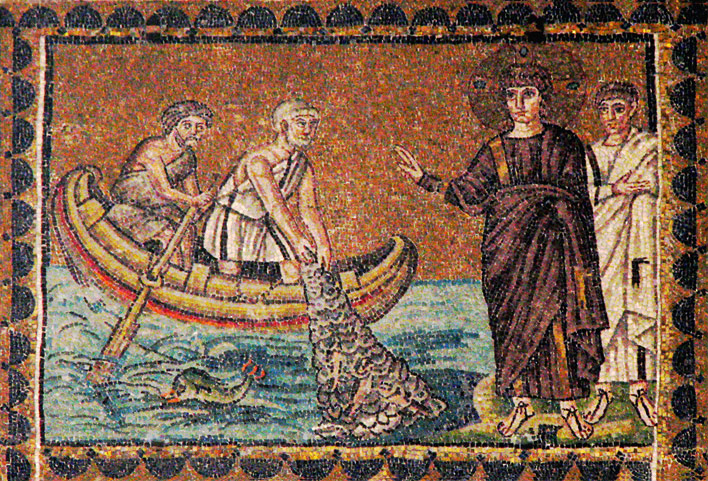
Jesus the Teacher
Like all true spiritual leaders, Jesus was uncompromising; should his actions and words involve politics, or have political consequences, then so be it, but, like the great Axial prophets and teachers before him, his aim was spiritual revitalization. Jesus was against the abuse of power, not simply out of compassion for the downtrodden, but because while people are dominated, restricted and crushed they cannot assume responsibility and fulfill their spiritual potential as human beings.
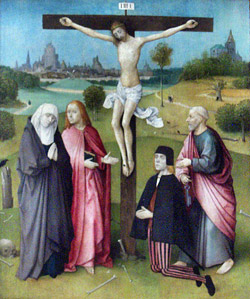
Dr. Hugh Schonfield’s studies lead him to conclude that Jesus was both a genius and a deeply spiritual man whose “ruling passion … was the coming of the ‘Kingdom of God.’” Schonfield says that for Jesus this meant a time when war and hatred would be banished, and when “the earth shall be full of the knowledge of the Lord, as the waters cover the sea. Jesus told the Pharisees that the Kingdom of God would not come by standing idle and watching for signs. The Kingdom of God was right beside them, under their noses, ready to appear whenever they were willing to comply with the conditions which would inaugurate it. Be alive, be alert, Jesus insisted. The goal will not be reached by a sleeping partnership with God.”
According to Schonfield, Jesus was convinced that his own destiny was to fulfill the Messianic prophesies of the Hebrew Bible. “Nothing could daunt him, neither the cares of life nor the prospect of a traitor’s death. He used the resources of his fertile mind to outgeneral and outwit his opponents, to compel their self-interested schemes to comply with his world-interested purposes.”
In accordance with prophesies, the Messiah would be crucified and then resurrected. Jesus arranged this too. He arranged that his apparent death on the cross be achieved by drugging him – giving him not vinegar and water but something else – so that he appeared dead and would be taken down before death, to rise again after three days. Were it not for the Roman soldier who thrust a lance into his side, which may well have prematurely killed him, he would have succeeded in his mission.
Professor Schonfield’s conclusions were written in 1965 in The Passover Plot. Over the ages many scholars and philosophers have contemplated the idea that Judas was required to carry out his actions so that Jesus could die on the cross, and hence fulfill the prophesies.
Gnosticism and the Gospel of Judas
It is fascinating to note that the recent translation of a papyrus from The Gospel of Judas appears to confirm that Jesus did indeed plan his own arrest, if not his apparent death. “You will sacrifice the man that clothes me,” Jesus tells Judas, and acknowledges that Judas “will be cursed by the other generations.” This fragmentary document clearly asserts that Judas had a degree of understanding greater than the others present, and that his action of betrayal was in obedience to a direct command of Jesus himself.
There is reference to a “Gospel of Judas” by the early Christian writer Irenaeus of Lyons, 2nd Century CE, who, in refuting Gnosticism, called the text a “fictitious history.”
Gnosticism is an esoteric religious movement whose name is derived from the Greek work gnosis “knowledge.” In the introduction to The Secret Teachings of Jesus, Four Gnostic Gospels, Marvin Meyer writes, “Gnostics emphasized the quest for understanding, but not a common, mundane understanding; they searched for a higher knowledge, a more profound insight into the deep and secret things of God. … Gnostic texts proclaim a complete good and transcendent God, whose enlightened greatness is utterly unfathomable and essentially indescribable. Yet this divine Other can be experienced in a person’s inner life, for the spirit within is actually the divine self, the inner spark or ray of heavenly light. … The Gnostics understood this mortal world, with all its evils and distractions, to be a deadly trap for one who seeks knowledge. … In order to be liberated, the spirit needs to be awakened and brought to sobriety, wholeness, knowledge and enlightenment. This transformation in one’s life, Gnostics maintained, is accomplished through a call from God – the God without and within – to discover true knowledge and rest. For Gnostic Christians, the source of the divine call is Christ.”
In his major work, Against Heresies, which appeared around the year 185 CE, Irenaeus of Lyons included a strong presentation and defense of Orthodox Christian dogma and denounced any text that did not support it. This campaign against what was called “heresy” continued until the time of the conversion of the Emperor Constantine in the 4th century, when orthodox Christianity became an official religion.

Through Irenaeus and others writing at the time, we know that early Christian communities developed independently with virtually no interaction between groups. Unlike the present time, Christian religious beliefs and practices were often very different from one another and a good number of gospels circulated. Elaine Pagels writes in The Gnostic Gospels, “Yet by A.D. 200, the situation had changed. Christianity had become an institution headed by a three-rank hierarchy of bishops, priests, and deacons, who understood themselves to be the guardians of the only ‘true faith.’”
The Gnostic Gospels
The suppression of documents outside the approved canon most likely led to the burial of 52 texts by early followers of Christ. Now referred to as the Gnostic Gospels, they were found in 1945, on the cliff at Nag Hammadi in Upper Egypt, hidden most likely by people who feared condemnation as heretics. They were not available in English until 1977, when at last we were able to learn and understand more about Jesus the Teacher.
As Pagels writes, Jesus “speaks of illusion and enlightenment, not of sin and repentance, like the Jesus of the New Testament. Instead of coming to save us from sin, he comes as a guide who opens access to spiritual understanding.”
The Gospel of Thomas is invaluable for anyone wishing to understand what Jesus taught. Unlike the four better known Synoptic Gospels it contains no narrative, Jesus performs no physical miracles, fulfils no prophecies. “These are the secret sayings that the living Jesus spoke and Didymos (the Twin) Judas Thomas recorded” it says at the beginning. Some of the 114 sayings are similar to those included in the best known Gospels, but given here in a far more comprehensive and authentic voice.
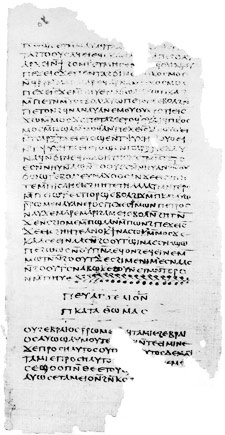
According to Marvin Meyer’s translation in The Gnostic Gospels of Jesus, in Saying 13, Jesus poses the question similar to the one we asked in the previous section: “Compare me to something and tell me what I am like.” Simon Peter said to him, “You are like a righteous messenger.” Matthew said to him, “You are like a wise philosopher.” Thomas said to him, “Teacher, my mouth is utterly unable to say what you are like.” Jesus said, “I am not your teacher. Because you have drunk, you have become intoxicated from the bubbling spring that I have tended.” And he took him, and withdrew, and spoke three sayings to him. When Thomas came back to his friends they asked him, “What did Jesus say to you?” Thomas said to them, “If I tell you one of the sayings he spoke to me, you will pick up rocks and stone me, and fire will come from the rocks and consume you.” In this extract, only Thomas perceives and understands the unique and substantive quality of Jesus. He knows that there are no words to adequately express this. Others have described it as equivalent to having, as it were, a separate organ of perception, a permanent “I,” one that is “awake,” has self-knowledge and through that clarity has knowledge of reality. Jesus tells Thomas that he is not his teacher because Thomas has understood and so developed this perceptive faculty himself, he too has Knowledge of Objective Truth: they are “as one.”
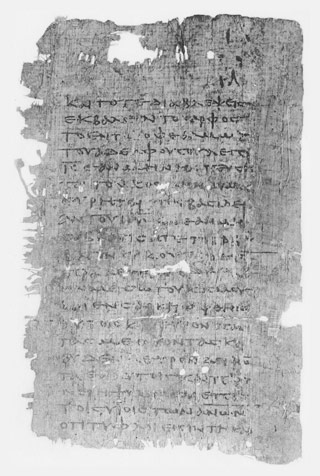
Pagels goes on to say: “This, I suggest, is the symbolic meaning of attributing the ‘Gospel of Thomas’ to Jesus’ ‘twin brother.’ I don’t think the statement was meant to be taken literally, as if Jesus actually had a twin brother. I think it is meant to say, in effect, that ‘You, the reader, are the twin brother of Christ, when you recognize the divine within you, then you come to see, as Thomas does in this gospel, that you and Jesus are at a deep level, so to speak, identical twins.’”
According to Pagels, the Gospel of Truth, also discovered at Nag Hammadi, also refers to the potential within the human spirit, when it says: “You are the children of inner-knowledge…Say, then, from the heart that you are the perfect day, and in you dwells the light that does not fail.”
Another of these texts, the Gospel of Philip, makes the same point more succinctly: “Don’t seek to become a Christian, but a Christ.”
Meyer translates Saying 108 from the Gospel of Thomas, “Jesus said: Whoever drinks from my mouth will become like me; I myself shall become that person and the hidden things will be revealed to that person.”
Jesus aimed to provoke self-knowledge and enlightenment. Wisdom is not something that can be taken, or bought and consumed and Truth cannot be understood prematurely; hence the teaching is described as “secret.”
After the incident from the Gospel of Thomas quoted above, Thomas tells the others that he cannot tell them what Jesus said, because: “you will pick up rocks and stone me, and fire will come from the rocks and consume you.” In other words, they are not ready to understand and if he tells them they will be envious and resentful of him, and these sentiments will harm them.
Similarly focusing on the necessity of preparation, Saying 14 continues: “Jesus said to them, ‘If you fast, you will bring sin upon yourselves, and if you pray you will be condemned, and if you give to charity, you will harm your spirits.’” Again, the disciples are not ready to perform these activities without harming themselves. They first need to become humble and free from hypocrisy: able to act without rewarding themselves by feeling “good” or “holy.”
Similarly with dietary practices: “When you go into any region and walk about in the countryside, when people take you in, eat what they serve you and heal the sick among them. After all, what goes into your mouth will not defile you; rather, it’s what comes out of your mouth that will defile you.”
Jesus was a teacher whose unquestionable mission was to restore the spiritual nature and function of his faith, the Jewish faith, which had once again declined into empty ritual, worldliness and corruption. “Think not that I am come to abolish the law or the prophets. I am not come to destroy, but to fulfill. For verily I say unto you, till heaven and earth pass away, one jot or one tittle shall in no wise pass from the law, till all be fulfilled.” Matthew (5:17–18).
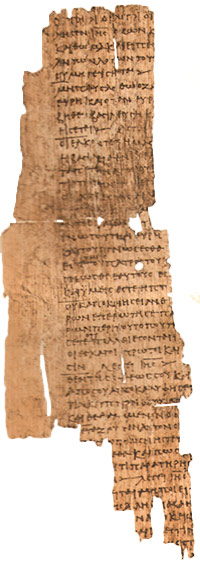
In this endeavor, like all true spiritual leaders, Jesus was uncompromising; should his actions and words involve politics, or have political consequences, then so be it, but, like the great Axial prophets and teachers before him, his aim was spiritual revitalization – a “new kingdom” in which those who listened and followed could fulfill their potential and destiny.
He taught at a time when, because of Rome’s imperial domination, the Jewish experience of religious ideals melded with their politics. Rome instituted social stratification right through society, leading to systematic injustice for the many people on the bottom rungs. Meyer translates Saying 54 where Jesus directed his message to them, the poor and destitute: “Blessed are the poor, for yours is heaven’s kingdom.”
Jesus was against the abuse of power wherever he saw it. So he broke with all ties to any kind of exploitation or abuse of power: social ties, institutional ties, and even with his own family ties. “Whoever does not hate father and mother cannot be a disciple of me, and whoever does not hate brothers and sisters and bear the cross as I do will not be worthy of me,” he says in Saying 55. Families, too, were hierarchical, ruled by a paternal chauvinism that held their members down.
Many Jews sought the literal Kingdom of God on earth; Jesus taught that alignment with “the Father’s Kingdom” was the individual’s spiritual aim and purpose. “It will not come by watching for it. It will not be said, ‘Look, here it is,’ or ‘Look, there it is.’ Rather the father’s kingdom is spread out upon the earth, and people do not see it.” (Saying 113). People do not see it because we have not developed the capacity. Saying 111 says “Whoever has found oneself, of that person the world is not worthy.” To be like Jesus, one must learn, as the Prophet Muhammad would emphasize more than 500 years later: “To be in the world, but not of the world.”
Like the Axial sages, the Kingdom of God that Jesus spoke of was achievable here and now through one’s own efforts, actions and thoughts, and that was all that mattered. He taught through direct communication, to anyone who would really listen “Let those who have ears, hear” – that the Kingdom of God was possible for everyone who relinquished all ties to anything and anyone that did not lead to a greater understanding and love of God.
